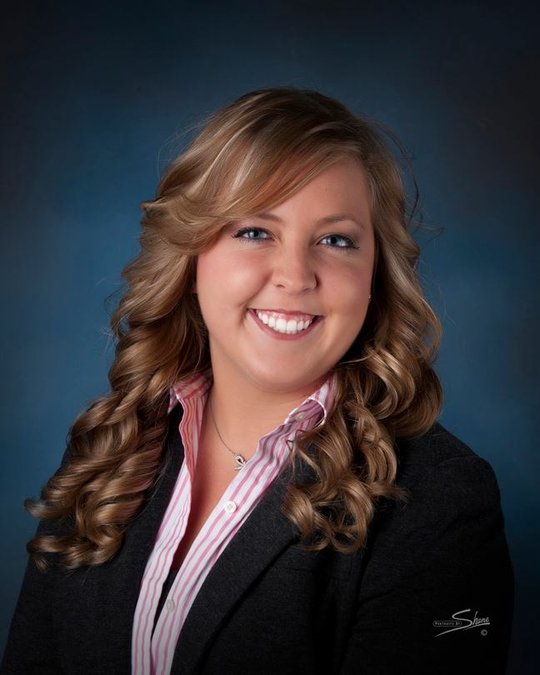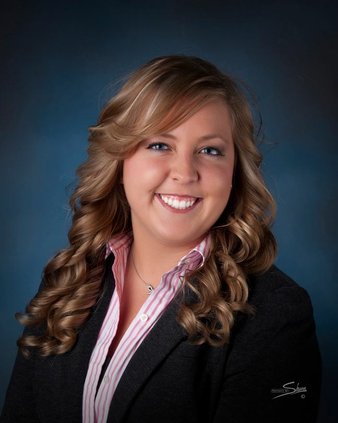BY NOAH TABORDA
Kansas Reflector
and staff reports
TOPEKA — The 2022 Legislature convened Monday in Topeka to begin policymaking with election-year politics looming large and coronavirus-related legislation, as well as redistricting, front and center over the coming months.
The 125 representatives and 40 senators will begin committee deliberations this week, hoping to pass legislation Gov. Laura Kelly sees fit to sign. As Republicans hold supermajorities in both chambers, expect debate on tightening election laws and renewed efforts to undercut vaccine mandates.
“As for an overall tone, I hope we can get alot done this year,” said District 112 Rep. Tory Arnberger-Blew, R-Great Bend, although she has doubts. This being an election year, things could get bogged down.
But, there are plenty of issues on lawmakers’ plates.
Budget issues
“The state of Kansas is coming into this session with around a $3.8 billion surplus,” said Arnberger-Blew. “Personally I think we should pay off as much debt as possible.”
Arnberger-Blew, who sits as the vice-chair of the Federal and State Affairs Committee, said the Legislature should first look at funding the Kansas Public Employee Retirement System as it is the state’s largest debt expense. “There is a plan being drafted that will save $40 million each year in KPERS payments,” she said.
Rep. Susan Concannon, a Beloit Republican and chairwoman of the House Children and Seniors Committee, said there is a great deal of excitement around working with a budget surplus, something past legislatures often lacked.
“Figuring out where the gaps are in Kansas and where, what and how we can best use that money is a good problem to have,” Concannon said. “I’m looking forward to coming here and passing the budget … and we’ve got some child welfare issues that I’m interested in that I’ve kind of focused on this session.”
State economists projected in November a $2.9 billion surplus, which could grow if tax revenues exceed expectations. Last week, the governor announced Kansas exceeded December estimates for total tax collections by $64.5 million.
Kelly delivered her State of the State Address Tuesday night. Legislators will receive her proposed budget at 9 a.m. today.
Redistricting
“Redistricting will be another hurdle we will be approaching,” Arnberger-Blew said. “The 112th district lost nearly 2,900 in population, which is over a 12% decrease. It is going to be imperative that we fight to not lose a seat or two in western Kansas.”
This could be a political football, Arnberger-Blew said. If the Legislature wants to avoid the courts having to determine districts, their plan has to meet the governor’s approval.
There is a lot of concern among lawmakers from southeast Kansas and out west about dwindling populations while more districts could be added to more populous eastern portion of Kansas, she said.
Other things on the horizon
In 2021, legislators introduced more than 700 bills and passed more than 100 of them after debate in both chambers and approval from the governor. Leftover legislation, like medical marijuana, will carry over to this year.
Sen. Molly Baumgardner, a Louisburg Republican and chairwoman of the Senate Education Committee, said the committee she oversees will spend the first few weeks cleaning up past legislation and working on unfinished business from 2021.
“We’re going to look at the numbers as far as what’s happening with enrollment in K-12, as well as the college level,” Baumgardner said. “Next week, my hope is that we’ll have the trailer bill for the Promise Act, to resolve some issues that came up separately, and we’ll start working through the other bills, some of the issues that came up in the interim education meetings and some bills that are left over from last year.”
The Kansas Promise Scholarship Act, which passed the Senate and House, would provide post-secondary educational scholarships for certain two-year associate degrees and technical education programs.
Another looming education issue is critical race theory, even though state and local school boards have repeatedly told legislators that no K-12 school in the state teaches the college-level academic body of work. Sen. Oletha Faust-Goudeau, a Wichita Democrat, said she was looking forward to finally debating the issue.
“I have had a lot of constituents reach out to me about critical race theory,” Arnberger-Blew said. An interim committee met with Education Secretary Randy Watson and their have been bills pre-filed.
On the front burner
Faust-Goudeau also pointed to other issues demanding immediate attention from legislators.
“People are still struggling to pay their bills due to loss of jobs with COVID, and I’m especially excited to be back here so we can get a better handle on unemployment issues because I’m still getting phone calls and email and still helping those get in touch with the Department of Labor regarding that issue,” Faust-Goudeau said.
However, Arnberger-Blew said she has heard from constituents they still can’t through to get jobless benefits. Lines and wait times continue to be long.
“I thought we’d be over this by now” as the federal COVID unemployment extension program ended. That is not the case.
“I’m actually shocked by that,” she said.
On a related note, she said state officials have told her that most jobless money lost to fraud has gone overseas. Despite the Federal Bureau of Investigation working to recover it, Kansas is just out millions of dollars.
Rep. Boog Highberger, a Lawrence Democrat, was less optimistic about the passage of potential legislation that benefits all Kansans but hoped lawmakers could come together on issues like criminal justice reform and efforts to get rid of the food sales tax. He expressed concern with the potential for partisan politics in the redistricting process.
“I think (the legislative session) is going to be a train wreck, and I think it’s going to be highly partisan,” Highberger said. “I want (Kansans) to ask our legislators to be pragmatic rather than ideological and to try to do what’s right, whether it fits your exact preconceptions or not.”
School choice and sports wagering are two other items that may crop up this session, Arnberger-Blew said.


A glut of cash and issues from tax cuts to medical marijuana await Kansas lawmakers
BY JIM MCLEAN
Kansas News Service
Kansas lawmakers returning to Topeka this week find a growing pile surplus of cash — and some tough election-year choices.
They’ll need to redraw the state’s political map, and sort out a perennial list of issues like medical marijuana, sports gaming and election security. And new this year: critical race theory, a potent new culture war tinderbox.
Meanwhile, Democratic Gov. Laura Kelly hopes to boost her reelection campaign by pushing for nearly $1 billion in tax cuts.
Notably, she’s touting an end to the sales tax on groceries. She’s also proposing giving Kansans who filed income tax returns last year a one-time rebate of $250. Married couples who filed jointly would get $500.
Republicans, who control the Legislature, are normally all-in when it comes to tax cuts. Not so much when it comes to Kelly’s proposals. Giving her any big wins, they fear, could improve her chances of fending off a challenge from Republican Attorney General Derek Schmidt, their likely nominee for governor.
When Kelly announced her tax rebate plan, Kansas Senate President Ty Masterson, an Andover Republican, said he appreciated her “election-year revelation that Kansans are taxed too much” but preferred “permanent solutions.”
The fact that many Republicans have supported previous attempts to lower the sales tax may make it trickier for them to oppose the governor’s grocery tax proposal.
“I’m hoping that they’re being sincere and that they will work with me,” the governor said in an interview with the Kansas News Service.
Yet the cost of the proposal could prove problematic. Stopping the collection of the state’s 6.5% sales tax on groceries would mean about $500 million a year less in government revenue.
Kelly has said the state can cover the loss with its growing surplus, which could top $3 billion by the end of the budget year. Republicans argue that state government surplus is propped up by federal pandemic relief tax dollars — money that won’t last.
Masterson compared the situation to the federal stimulus money that flowed into the state following the Great Recession in 2008.
“We had some significant revenues that came through that process,” Masterson said. “But...when the federal dollars ended, so did the fun and games.”
Masterson and other Republicans say now is the time to impose additional spending controls on state government. Among other things, Masterson favors amending the Kansas Constitution to require a two-thirds vote of the Legislature to raise taxes.
“With so much money in the system,” he said, “this is the year to do it.”
It takes a two-thirds vote of the Legislature to place a proposed constitutional change on the ballot for Kansas voters to consider.
Constitutional resolutions don’t require the governor’s signature. Even so, Kelly said she’ll work to stop the proposed change if lawmakers appear close to getting on the ballot.
“It’s a very, very bad idea,” the governor said.
Several states that have adopted similar restrictions have struggled to fund government programs and respond to emergencies, Kelly said.
Election-year tensions could also complicate the job of redrawing state legislative and congressional districts to reflect population shifts. The biggest fight will likely be over how to reconfigure the Kansas City area district now represented by U.S. Rep. Sharice Davids, the lone Democrat in the state’s congressional delegation.
And sparks could fly over Republican efforts to use the controversy over critical race theory to debate how public schools can teach history.
Masterson said Republicans will push legislation for more “curriculum transparency.”
Charging that students are being exposed to radical theories on race, gender and social justice, Masterson said, “it’s important that parents know what their children are being taught.”
Kansas education officials have said repeatedly that critical race theory — a college-level curriculum — isn’t being taught in the state’s public schools. But they insist that slavery and racism are key to understanding American history.
At a legislative hearing in December, Ann Mah, a Democrat on the Kansas State Board of Education, urged members of the committee to “stop calling everything under the sun critical race theory.”
Some issues could find Republicans and Democrats working together to resolve long-standing disputes.
A Senate committee has scheduled briefings this week on bills to legalize medical marijuana and sports gaming.
On sports wagering, lawmakers appear closer to resolving disputes over how to tax the proceeds and whether state-owned and Indian casinos or the Kansas Lottery should handle the betting.
Thirty-six states allow medical marijuana. After debating the issue for years, Kansas lawmakers may be ready to follow suit.
“It’s possible,” Masterson said, provided lawmakers can work out a way to restrict distribution to only those with “legitimate medical needs.”
That could mean tougher rules than most states. For instance, a proposal that appeared to be gaining consensus among lawmakers last year would make it hard for people to shop for a doctor willing to prescribe the drug.





